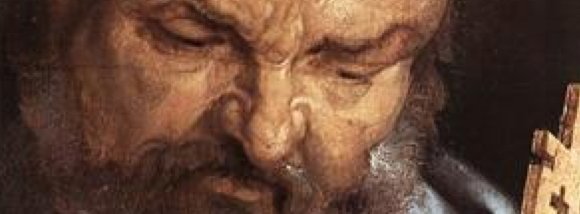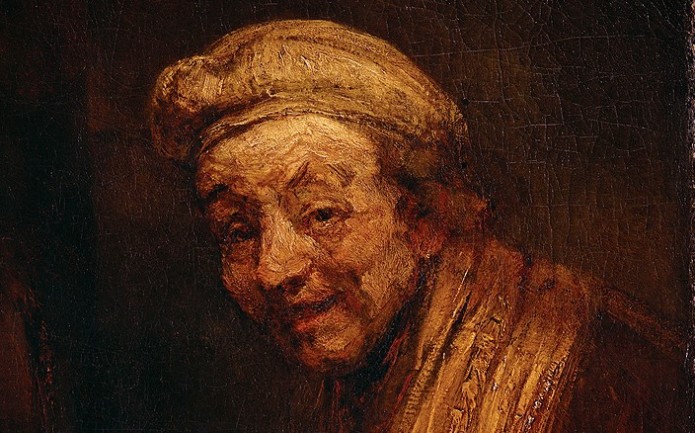by Howard Hain

Murillo, “Christ on the Cross”, (1660-70) (detail)
some were stones
others rocks
the difference
i’m not quite sure
though both are heavy
so many distinctions
almost all
humanly made
yet not even
a single
grain of sand
is created by man
perhaps then
stones are former rocks
those chosen to enforce
worldly power
perhaps they’re earthly kingdoms
established by men
men possessing
such domain
perhaps they’re the ones
reigning down
upon those brought low
upon those dragged
outside the walls
hauled off to a yard
to be stoned
yet both
both stone, and rock
seem to get along
as long as they’re simply left alone
call to mind
that famous pile
that most famous pile of stone
the one upon which
we crucified our Rock
to some it’s golgotha
to others it’s calvary
to too many
it’s a giant farce
but oh those stones
oh they don’t lie
and all those rocks
they build up the church
o, those stones, o, those rocks
yes, both big and both small
they keep straight
the vertical beam
upon which is nailed
the weight of the cross
it’s You of course
Father
who holds it all together
it’s You of course
Father
who provides all the strength
who holds up Jesus
for the world to see
the entire world
as You hold
those wooden beams
that stretch
to the ends of the earth
much like You taught
good saint joseph
that just and upright man
to hold Your child Jesus
o good saint joseph
everyone’s patron saint
break your silence
tell us then
tell us of that day
the day your Jesus
was crucified
speak o strong man of stone
you who speak
thru so many silent statues
chiseled to show forth
the birth of our salvation
for you saint joseph
are not only
the foster father
but also a stand-in
for the cross
for you are still there
you are still there to be seen
yes, saint joseph
you are at the crucifixion
playing a role
yes, Father God has taken over
but you joseph
are certainly present
for the crucifixion
is still a portrait
of the Holy Family
dear joseph
you reside in the wood
the scent of which
fills Jesus’ earthly suffering
it’s the scent of the workshop
the scent that Jesus breathed
His entire youth
especially when asleep
against your heart
good saint joseph
a just man
just home from work
your clothing covered in dust
the dust from the saw
cutting thru raw wood
it’s in this sense
that you joseph are present
in the sights and sounds
of the first domestic church
the clanging of hammer against nail
driven thru His hands and feet
Jesus thinks of joseph
the joy of work well done
the importance of finishing well
while all the while
the hard unrelenting
stone below
kisses His mother’s knees
consoling Jesus
reminding Him
and all of us
of the stability
of a truly godly home…
What a day among the stones!
Jesus, Mary, and Joseph, pray for us.
Glory be to the Father, and to the Son, and to the Holy Spirit…
(Mar/16)





